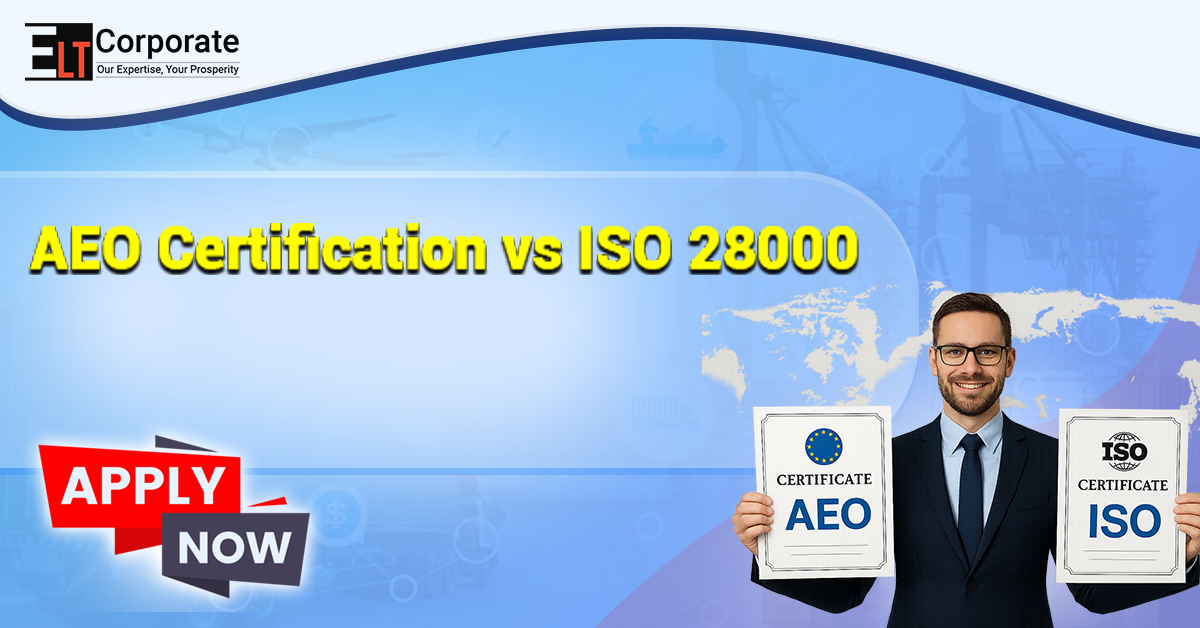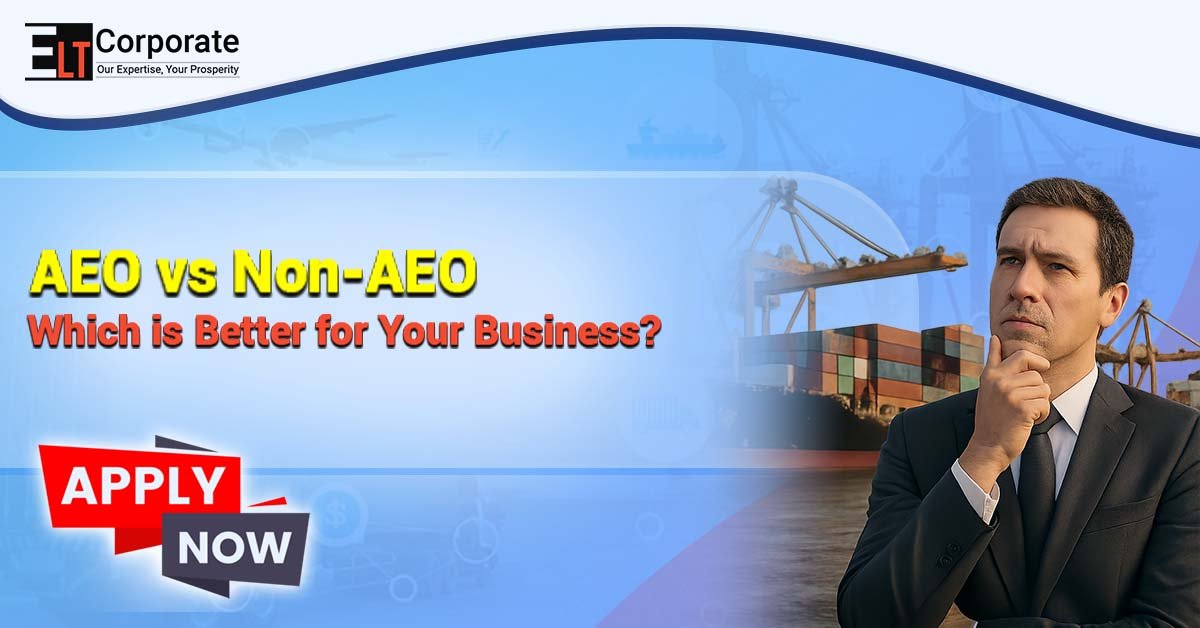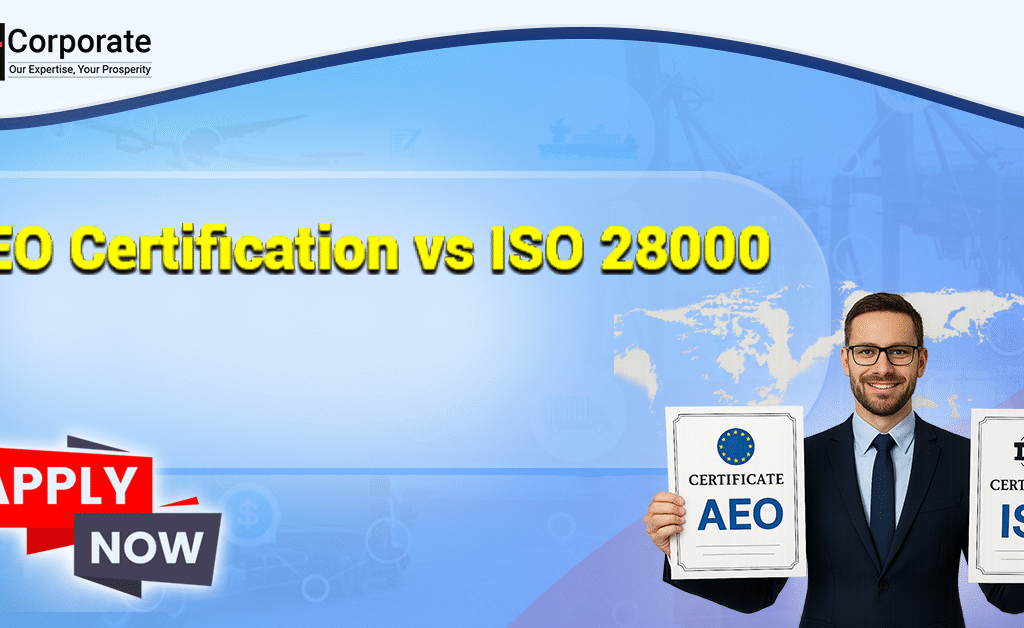International trade is growing rapidly, and businesses engaged in imports and exports often face delays, compliance challenges and high costs. To streamline this process, the authorised Economic Operator (AEO) certification was introduced by the Central Customs of Indirect Taxes and Customs in Indian. It is a globally recognised program that strengthens the supply chain security by offering rapid and more efficient customs approval.
In this article, we will explain what AEO certification is, the eligibility criteria, required documents, and the benefits for businesses in India.
What is AEO Certification?
The authorised Economic Operator (AEO) Certification is part of the safe structure of the World Customs Organisation (WCO) standards. It is designed to make global trade safe and convenient.
In India, the AEO program is administered by CBIC and applies to importers, exporters, logistics and other stakeholders in the international supply chain. An AEO-certified business is recognised as a reliable and obedient business partner, with lower checks, rapid processing and privileges such as international reliability.
Eligibility for AEO Certification in India
Not every business automatically qualifies for AEO status. The applicant must meet certain requirements prescribed by CBIC:
- Nature of Business
- Importers and exporters (AEO-T1/T2/T3)
- Logistics providers, custodians, terminal operators, customs brokers, and warehouse operators (AEO-LO)
- Period of Business Operations
- At least three financial years of business activities are required to apply.
- At least three financial years of business activities are required to apply.
- Compliance Record
- Clean record with customs, GST, and other regulatory bodies.
- No cases of fraud, smuggling, or financial irregularities in the last 3 years.
- Financial Stability
- Strong financial health demonstrated through audited accounts.
- Strong financial health demonstrated through audited accounts.
- Security and Safety Standards
- Proper procedures for cargo handling, information security, employee screening, and physical security of premises.
Documents Required for AEO Certification
The list of documents may vary depending on the type of AEO (T1, T2, T3, LO). Generally, the following are required:
- Application Form (Annexure A/B as per CBIC guidelines)
- Business Registration Documents (PAN, GST, IEC, Incorporation Certificate, etc.)
- Audited Financial Statements of the last three years
- Details of Import and Export Transactions
- Compliance Records with Customs, GST, and DGFT
- Security Policy Documents (covering cargo, IT systems, HR, and physical security)
- Standard Operating Procedures (SOPs) for supply chain management
- Self-Assessment Forms and Declarations
Types of AEO Certification in India
- AEO-T1 – Basic level for small and medium-sized businesses
- AEO-T2 – Higher level with stricter compliance requirements
- AEO-T3 – Highest level with maximum benefits, usually for large and established businesses
- AEO-LO – For logistics providers and operators involved in handling, warehousing, or transporting cargo
Benefits of AEO Certification
Obtaining AEO status brings multiple advantages, both in India and internationally:
Customs-Related Benefits
- Faster customs clearance of goods
- Reduced physical inspections and document checks
- Priority processing at ports and terminals
- Direct port delivery (DPD) and direct port entry (DPE) facilities
Financial Benefits
- Waiver or reduction in bank guarantees for customs procedures
- Deferred payment of duties in some cases
- Cost savings due to reduced delays and demurrage
Business & Trade Benefits
- Enhanced reputation and credibility in global trade
- Recognition under Mutual Recognition Agreements (MRAs) with other countries
- Competitive advantage over non-AEO businesses
- Strengthened supply chain security
Why AEO Certification Matters
For Indian businesses engaged in global trade, AEO authentication is no longer optional. It is a mark of belief and compliance that opens the doors for rapid shipment, low cost and better global recognition.
By meeting the eligibility criteria, preparing the required documents, and applying to CBIC, businesses can unlock the numerous benefits of becoming an Authorised Economic Operator.
Final Thoughts
AEO Certification in India is a strategic tool for businesses that want to scale internationally with minimal regulatory hurdles. Whether you are an exporter, importer, or logistics operator, securing this certification can significantly improve your supply chain efficiency and global competitiveness.





